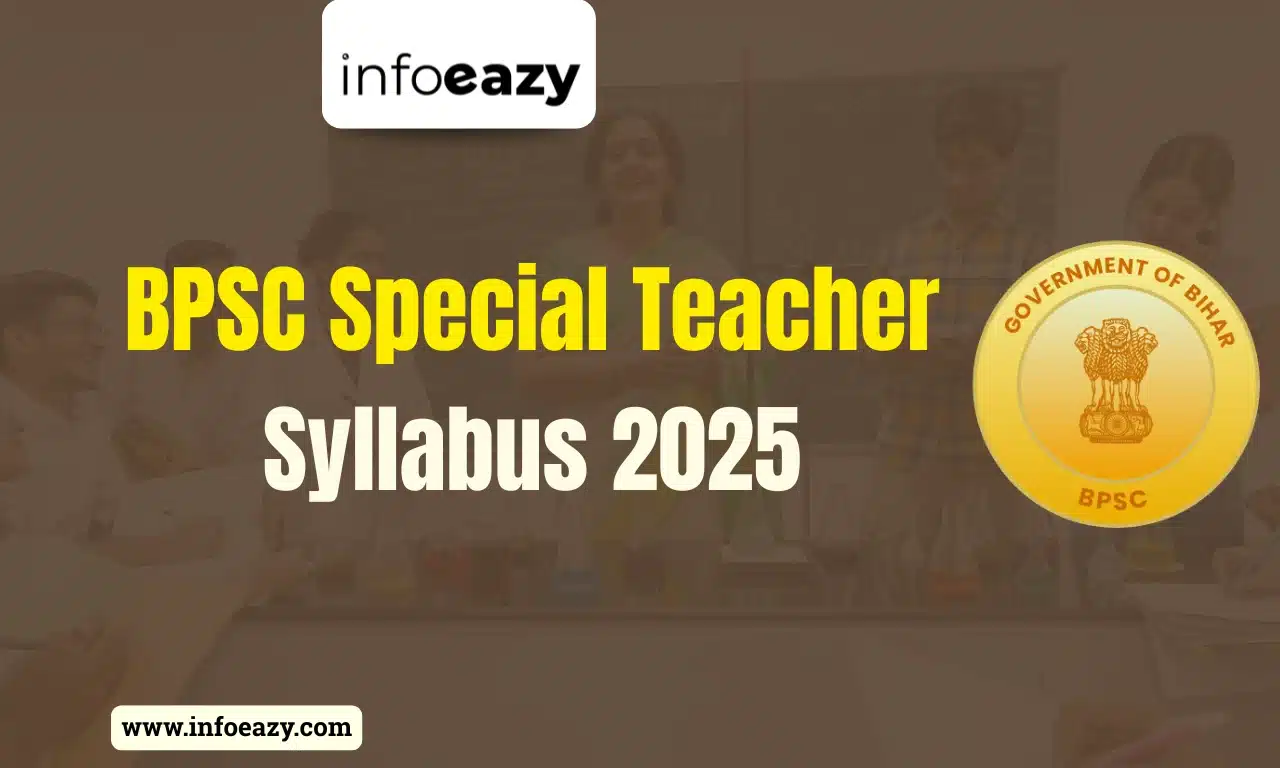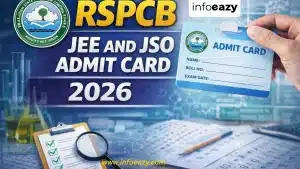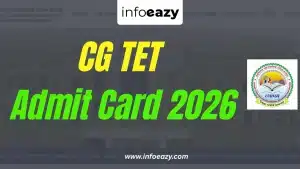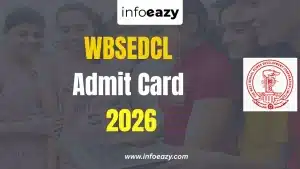The BPSC Special Teacher Syllabus 2025 and exam pattern are essential for candidates preparing to become special educators under the Bihar government. This syllabus focuses on child development, inclusive education, subject knowledge, and teaching methodology tailored for children with special needs. A clear understanding of the BPSC Special Teacher Exam Pattern and topic-wise syllabus helps aspirants plan a focused and effective preparation strategy to excel in the upcoming exam. The detailed syllabus and exam pattern have been mentioned below in the article.
BPSC Special Teacher Syllabus 2025
The BPSC Special Teacher Syllabus 2025 outlines the key topics candidates need to prepare for the upcoming recruitment exam. Designed specifically for teachers in the field of special education, the syllabus focuses on child development, inclusive education, pedagogy, subject knowledge, and current educational practices. Understanding the complete syllabus is essential for effective preparation and success in the exam.
BPSC Special Teacher Syllabus 2025 Overview
The key highlights related to the BPSC Special Teacher Syllabus 2025, based on the data provided in the official notification, have been shared below in the table.
| BPSC Special Teacher Syllabus 2025 Overview | |
| Category | Details |
| Total Vacancies | 7,279 posts (Primary: 5,534; Upper‑Primary: 1,745) |
| Number of Subjects | 3-4 major sections, depending on class level |
| Subjects |
|
| Marking Scheme | 1 mark per question, no negative marking |
| Total Marks | 150 marks |
| Exam Duration | 150 minutes (2.5 hours) |
| Exam Pattern (Primary) | Part 1: Language – 30 marks
Part 2: General Studies – 120 marks |
| Exam Pattern (Upper‑Primary) | Part 1: Language – 30 marks
Part 2: General Studies – 40 marks Part 3: Concerned Subject – 80 marks |
| Official Website | bpsc.bih.nic.in |
BPSC Special Teacher Exam Pattern 2025
The BPSC Special Teacher Exam Pattern 2025 is designed to evaluate candidates on their understanding of child development, special education, subject knowledge, and teaching aptitude. This exam plays a crucial role in selecting qualified educators who can effectively teach and support children with special needs. The detailed exam pattern has been shared below.
| BPSC Special Teacher Exam Pattern 2025 for Class 1 to 5 | |||||
|---|---|---|---|---|---|
| Part | Subject | Topics | Questions | Marks | Time |
| 1 | Language (Qualifying) | English / Hindi / Urdu / Bangla | 30 | 30 | 150 minutes |
| 2 | General Studies | Elementary Mathematics, Mental Ability Test, General Awareness, General Science, Social Science, Indian National Movement, Geography, Environment | 120 | 120 | |
| Total | 150 | 150 | |||
BPSC Special Teacher Exam Pattern 2025 for Classes 6 to 8 has been provided below.
| BPSC Special Teacher Exam Pattern 2025 for Class 6 to 8 | |||||
| Part | Subject | Topics | Questions | Marks | Duration |
| 1 | Language (Qualifying) | English / Hindi / Urdu / Bangla | 30 | 30 | 150 minutes |
| 2 | General Studies | Elementary Mathematics, General Awareness, General Science, Indian National Movement, Geography | 40 | 40 | |
| 3 | Subject Paper for Middle School Teachers | Mathematics & Science, Social Science, Hindi, Urdu, Sanskrit, or English (choose one) | 80 | 80 | |
| Total | 150 | 150 | |||
BPSC Special Teacher Topic-wise Syllabus 2025
The BPSC Special Teacher Topic-wise Syllabus 2025 provides a clear roadmap for candidates preparing for the Special Education Teacher posts under the Bihar Public Service Commission. It covers essential areas like child development, inclusive education, pedagogy, subject knowledge, and ICT skills. Understanding the detailed syllabus helps aspirants focus on the right topics and build a strong foundation for success in the exam.
| BPSC Special Teacher Topic-wise Syllabus 2025 | ||
| Section | Topics | Detailed Sub-Topics |
| 1. Child Development & Pedagogy | Child Development | Stages of development (0-18 yrs), milestones, emotional and social development, adolescence issues |
| Theories of Development | Piaget, Vygotsky, Kohlberg, Erikson – major learning and moral development theories | |
| Learning Process | Types of learning, transfer of learning, constructivism, motivation, reinforcement | |
| Individual Differences | Intelligence, multiple intelligences, slow learners, gifted students, personality, learning styles | |
| Pedagogical Concerns | Inclusive classrooms, learner-centered approach, teacher roles, and classroom management | |
| Assessment & Evaluation | CCE, diagnostic tests, rubrics, child tracking system, evaluation strategies for CWSN | |
| 2. Special Education & Inclusive Practices | Foundations of Special Education | Concept, scope, objectives, principles, historical perspective |
| Disability Categories (RPWD Act 2016) | Visual, hearing, locomotor, intellectual, autism, SLDs, mental illness, multiple disabilities | |
| Inclusive Education | Philosophy, UDL, multi-level teaching, peer support, collaboration with parents & community | |
| IEP & Planning | Individualized Education Plan – goals, implementation, collaboration with therapists | |
| Assistive Devices | Braille, hearing aids, screen readers, AAC, smart tools, mobility aids | |
| Role of Special Educator | As a facilitator, collaborator, counselor, and curriculum adapter | |
| Barriers to Inclusion | Social, behavioral, attitudinal, infrastructural, and strategies to overcome them | |
| 3. Teaching Aptitude & Methodology | TLMs | Preparation and adaptation of learning materials for different disabilities |
| Teaching Methods | Activity-based learning, multisensory teaching, peer tutoring, and remedial teaching | |
| Behavior Management | Positive reinforcement, behavior contracts, token economy, functional behavior assessment | |
| Counseling & Support | Techniques for students and parents, group vs individual counseling | |
| Evaluation Techniques | Functional assessment, observational methods, task analysis | |
| 4. ICT in Education | ICT Basics | Computer usage, projectors, digital blackboards, and use of technology in the classroom |
| Assistive Tech for CWSN | Speech-to-text, text-to-speech, interactive educational apps, specialized keyboards | |
| Digital Classrooms | e-learning platforms, online content for disabled learners, and inclusive digital content | |
| Tech-based Assessment | Online adaptive testing, performance tracking tools | |
| 5. Language Proficiency (Hindi & English) | Comprehension | Unseen passages with vocabulary, inference, and grammar questions |
| Language Pedagogy | Methods of teaching (GT, direct, communicative), bilingualism, and inclusive language teaching | |
| Grammar & Usage | Tenses, voice, speech, articles, modals, error spotting | |
| Communication Skills | Listening comprehension, paragraph writing, verbal and written fluency | |
| 6. General Awareness & Reasoning | Current Affairs | National and international updates, NEP 2020, government schemes |
| Education Policies & Acts | RCI Act, PWD Act, RPWD Act 2016, NCF, POCSO, Sarva Shiksha Abhiyan | |
| Bihar GK | History, culture, geography, state schemes for disability, and education | |
| Reasoning Ability | Series, analogy, direction sense, classification, puzzles, clock, calendar | |
| 7. Subject Concerned (as per post) | Mathematics | Number system, algebra, geometry, mensuration, data handling, pedagogy |
| Science | Life processes, physics basics, environment, food & nutrition, scientific methods, pedagogy | |
| Social Science | History, civics, geography, political science, economics, pedagogy | |
| English | Prose, poetry, grammar, comprehension, and literature teaching methods | |
| Hindi / Sanskrit / Urdu | Grammar, literature, writing skills, and the pedagogy of language | |
| Other Subjects (as applicable) | Based on the opted subject for TGT/PGT – depth of content and teaching approach | |
Also Read: BPSC Special Teacher Eligibility Criteria 2025
BPSC Special Teacher Exam 2025 Preparation Tips
Preparing for the BPSC Special Teacher Exam 2025 requires a clear understanding of the syllabus, smart study strategies, and consistent practice. The tips to prepare for the exam have been listed below to help candidates in preparing effectively and efficiently.
- Understand the complete syllabus and exam pattern before starting preparation.
- Focus on inclusive education concepts, disability types, and teaching strategies for CWSN.
- Strengthen the basics of child development, pedagogy, and educational psychology.
- Practice language skills in both Hindi and English, including grammar and comprehension.
- Revise general studies topics, especially Bihar-specific facts and recent education-related schemes.
- Allocate daily time for subject-specific study based on the post applied (Primary or Upper-Primary).
- Solve previous year papers and mock tests to improve speed and accuracy.
- Use NCERT and RCI-approved books for reliable conceptual clarity.
- Make concise notes for last-minute revision and memorize important definitions and laws.
- Stay updated with the official BPSC website for any changes in the exam schedule or pattern.
| Other Related Posts | |
| BPSC Special Teacher Recruitment 2025 | BPSC Special Teacher Eligibility Criteria 2025 |
| BPSC Special Teacher Syllabus 2025 | |
BPSC Special Teacher Syllabus 2025 FAQs
Q1. What is the syllabus for BPSC Special Teacher 2025?+
Q2. Is the syllabus different for PRT, TGT, and PGT?+
Q3. Is knowledge of disabilities mandatory?+
Q4. Will there be questions on Bihar State GK and Education Policies?+
Q5. Are both the Hindi and English language sections compulsory?+
Tags: BPSC Special Teacher BPSC Special Teacher Syllabus BPSC Special Teacher Syllabus 2025




